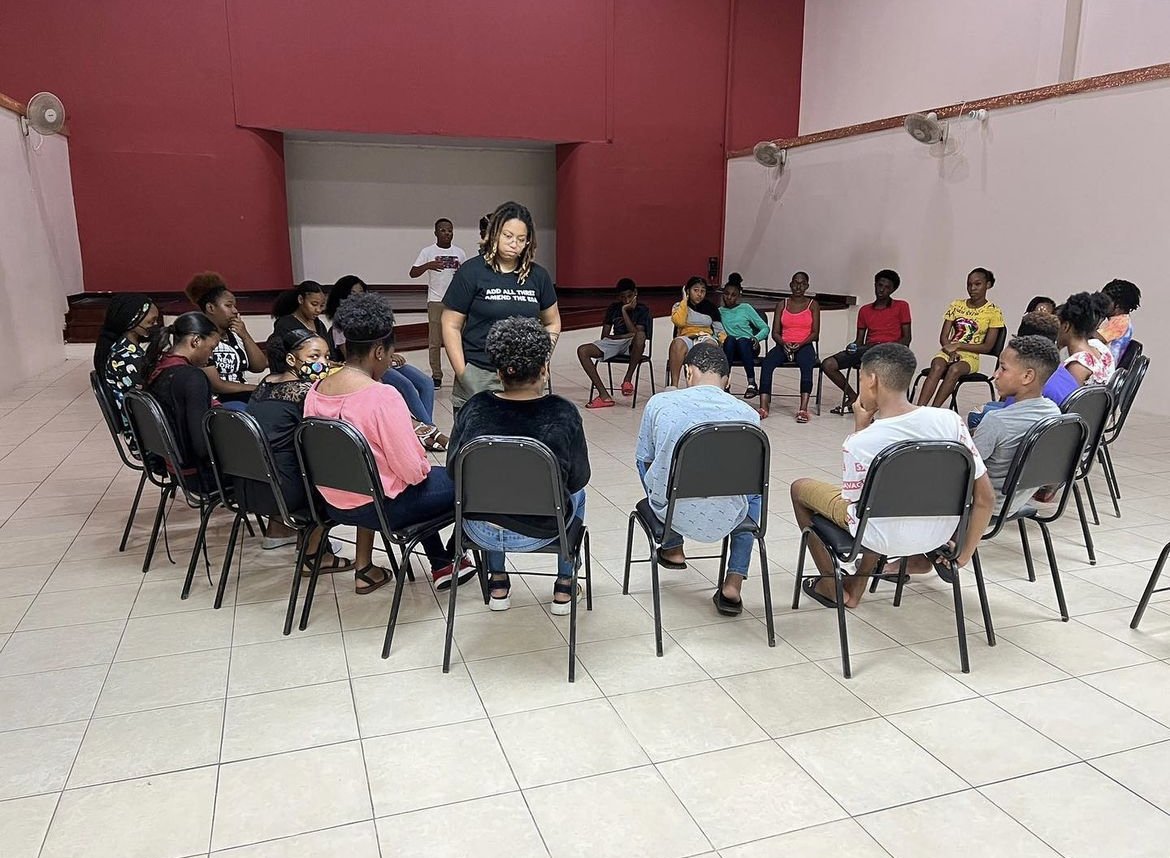An Investment for the Present and for the Future: Comprehensive Sexuality Education
This year, the theme of International Education Day is “to invest in people, prioritise education”.
Investing in people is not an economic trope, it is a guarantee of human rights that enables all citizens to live and lead quality lives. As a signatory to the United Nations Sustainable Development Goals (SDGs), Trinidad and Tobago has committed to Goal 4: Inclusive and Quality Education for All. Among its key targets, SDG 4.7 underscores the importance of equipping learners with the knowledge and skills to lead sustainable lives, achieve gender equality, and uphold human rights. Education, therefore, is not only a developmental tool but a fundamental human right.
Young people should have access to CSE to make informed decisions and have control over their sexual and reproductive health rights, free of violence, coercion, and discrimination.
Photographed: Needs Assessment Consultation led by young people for young people in Trinidad and Tobago
Access to Comprehensive Sexuality Education (CSE) must be recognised within this framework. CSE is more than a curriculum—it is both an educational right and a sexual and reproductive health right, and it directly supports SDG 3: Good Health and Well-being and SDG 5: Gender Equality. By ensuring that young people access CSE, we empower them to make informed decisions, exercise control over their sexual and reproductive health, and live free from violence, coercion, and discrimination.
In 2024, the Family Planning Association of Trinidad and Tobago, in collaboration with Feminitt Caribbean, launched Youth and CSE, a project grounded in youth-led needs assessments. This initiative highlights what young people themselves are asking for: safe, accurate, and relevant education.
The urgency cannot be overstated. Gender-based violence (GBV) remains a pervasive issue in Trinidad and Tobago and across the Caribbean. Between 2019 and 2020, reported abuse cases to the TTPS surged by 140 percent, exacerbated by the COVID-19 pandemic. Globally, UN Women notes that nearly 1 in 3 women will experience physical or sexual violence by a partner. GBV is not confined to the home, it is also experienced in schools, where bullying, harassment, and inequitable norms perpetuate cycles of violence.
CSE directly addresses these challenges. It goes beyond teaching about sex to cover boundaries, equity, respect, and safety. Delivered in an age-appropriate and rights-based way, CSE teaches young people to recognize and resist violence, to challenge harmful gender norms, and to build healthier relationships. The United Nations has consistently emphasized that implementing CSE brings us closer to achieving the SDGs.
At present, the Health and Family Life Education (HFLE) curriculum does not provide sufficient, comprehensive, or age-appropriate sexuality education. This gap leaves children and youth vulnerable to misinformation and poor decision-making. By integrating CSE into HFLE, Trinidad and Tobago can ensure that education reflects values of inclusion, diversity, equality, and respect while promoting health and well-being for all young people.
We therefore call on the Ministry of Education and the Ministry of Health to collaborate with civil society organizations to implement comprehensive, age-appropriate CSE across all schools in Trinidad and Tobago.

